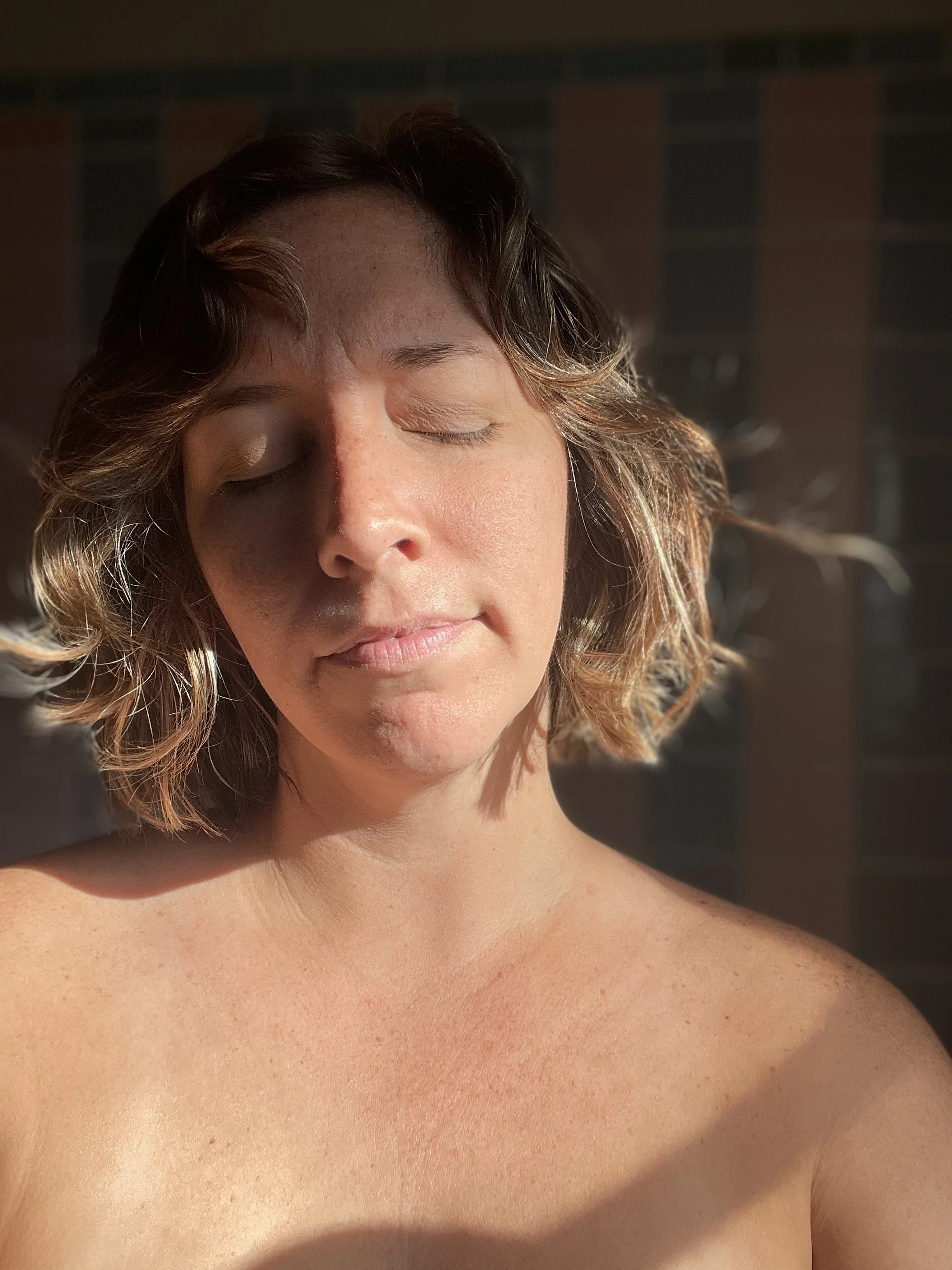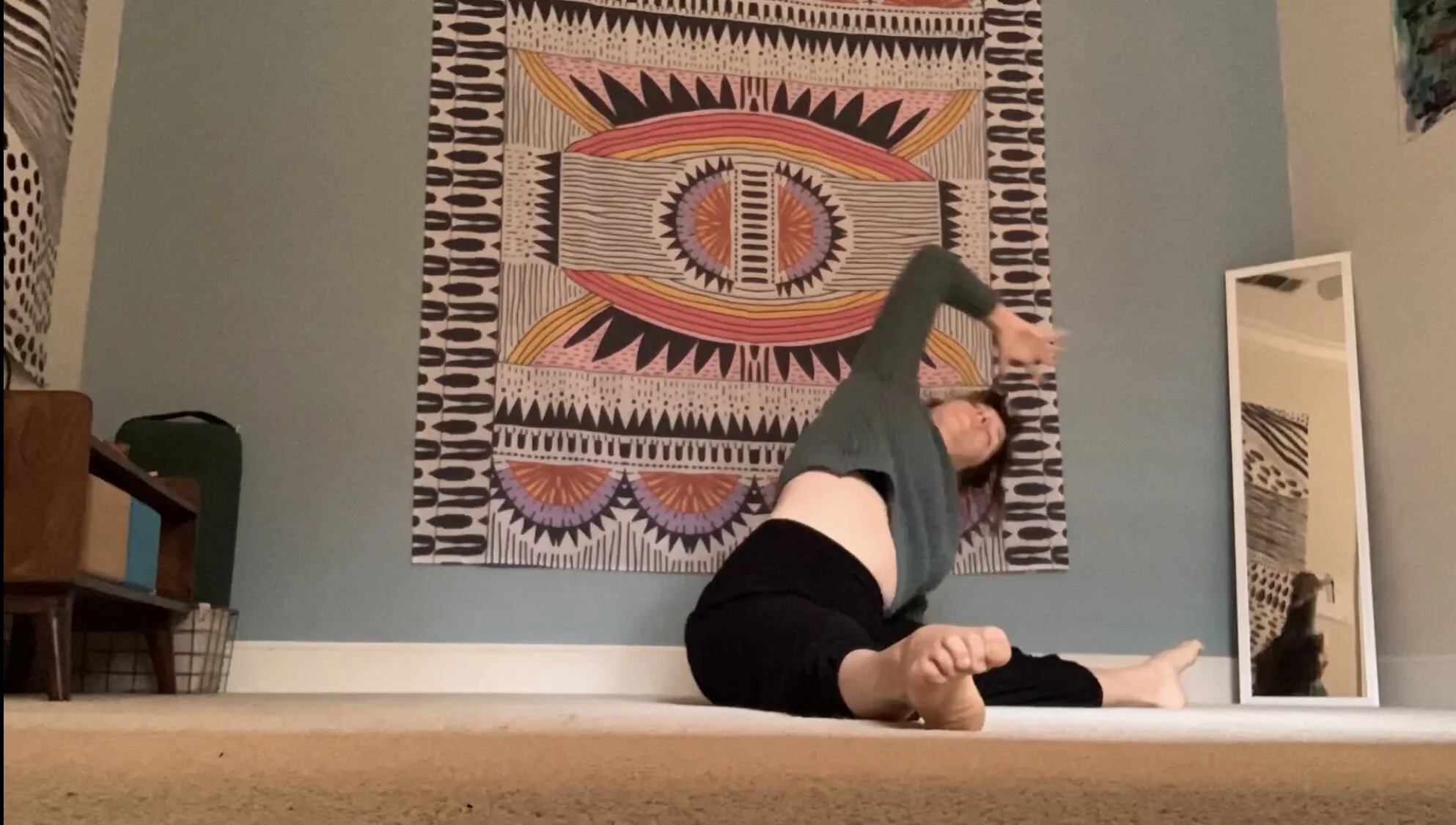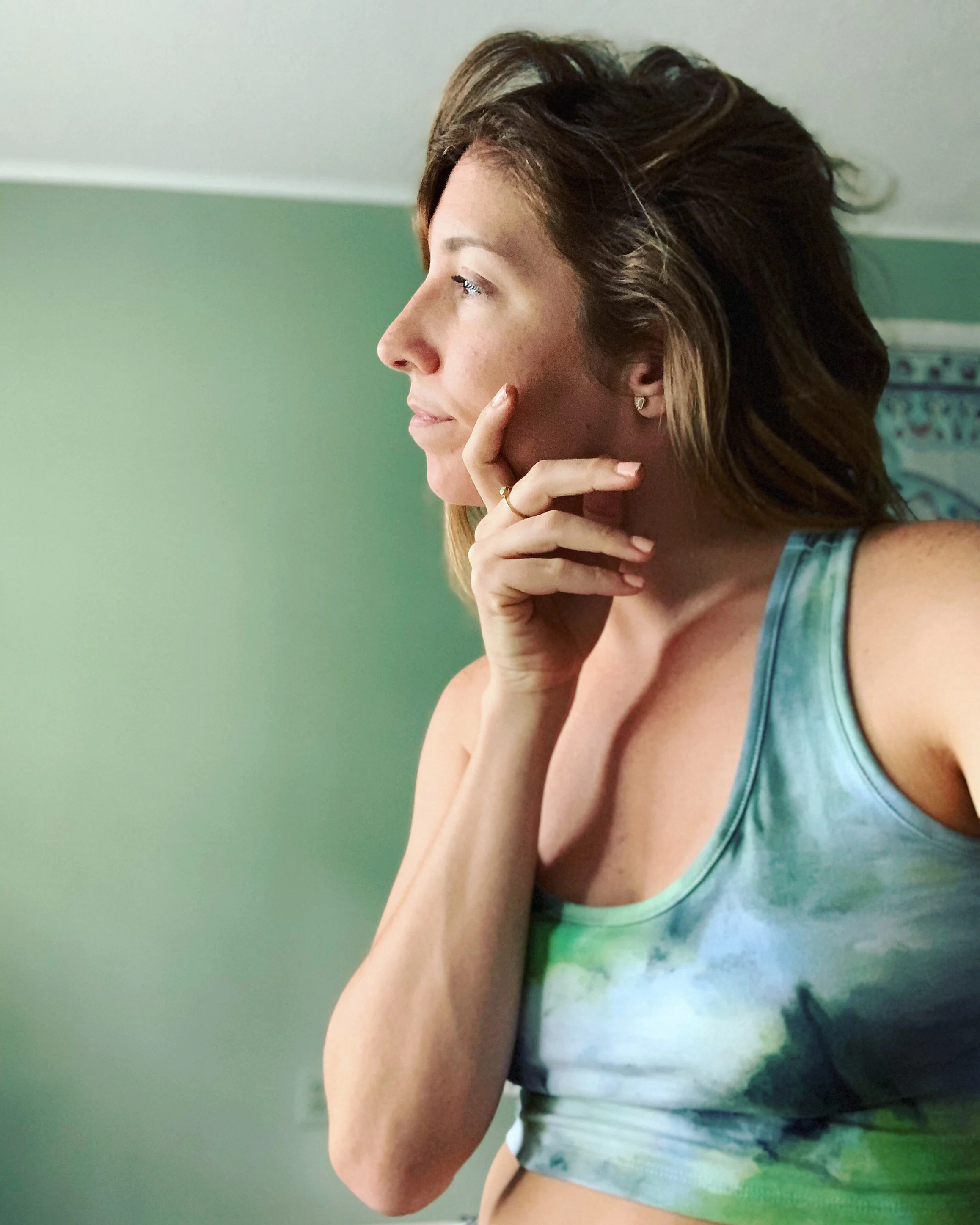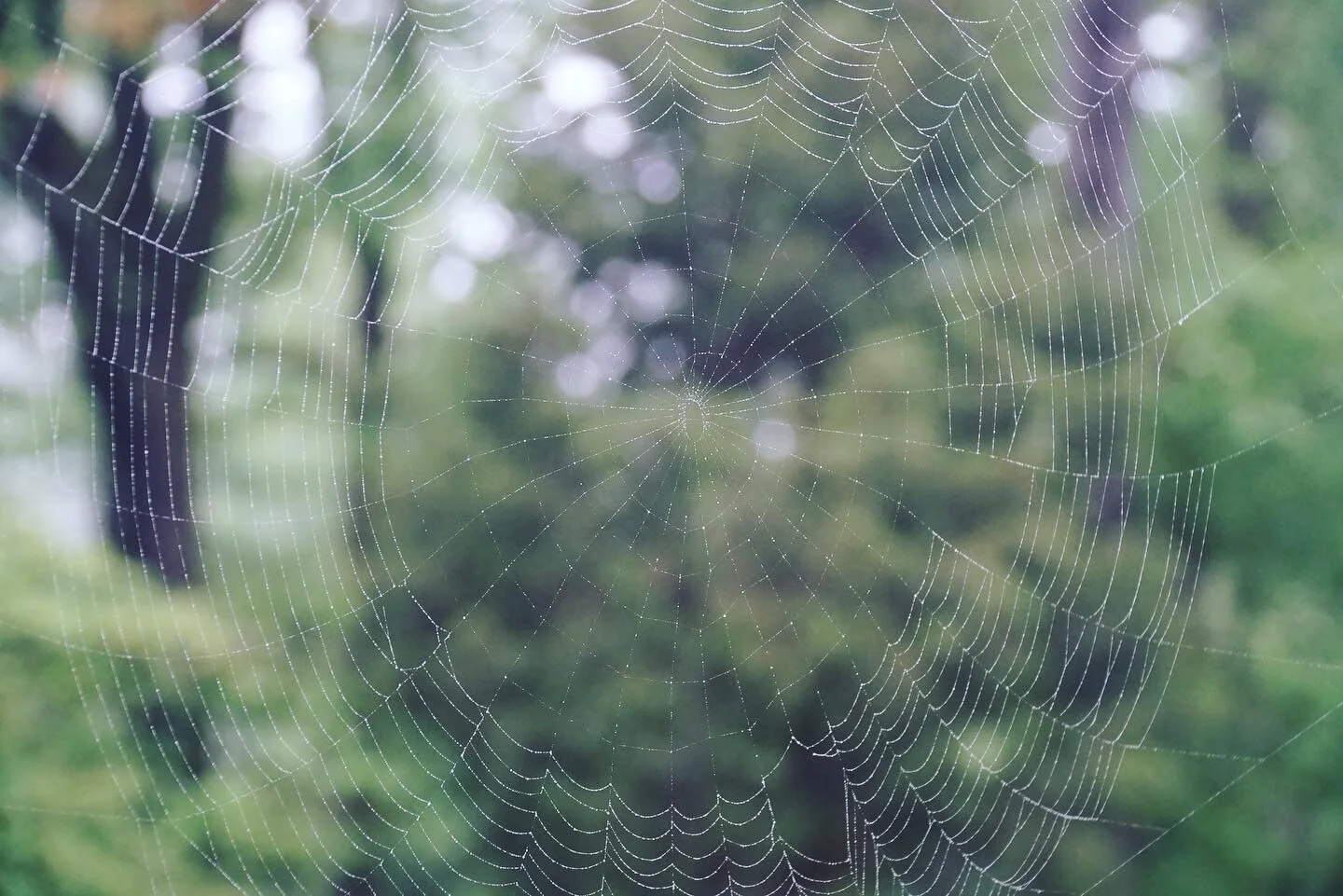
Being Anti-Antidepressants in the Health + Wellness Field
I had been diagnosed with anxiety a few years back + somehow that felt more acceptable to admit to than being depressed. We’re all a little anxious some of the time, right? But over the years, the anxiety was leading to such terrible, negative self-talk that the “I sort of feel meh sometimes” feeling I had been experiencing morphed into more of a “I think I have a real problem” feeling.
I was always under the impression that I didn’t have “real” depression. I wasn’t impossibly sad all the time. I still showered, cooked, went to work, did all the things. I was still social + outgoing + seemingly happy. But the easiest way to describe my depression is this – I didn’t want to kill myself but I also didn’t really care if I lived. And when you lack the appetite to fully live, life feels pretty bleak.
I don’t remember the exact tipping point when I realized that all the holistic rituals I was incorporating just weren’t cutting it. It was a long, slow decision to finally introduce an antidepressant into the mix. And if you suffer from anxiety or you’re a Highly Sensitive Person (HSP), then you know that your decision-making system is already taxed.
I was officially diagnosed with depression in March 2021; however, I’ve had low-level depression since being a teen. After a few months of waffling between whether or not antidepressants were the right choice for me, I finally decided to start taking Zoloft in June.
The choice was clouded by so much fear.
Fear of feeling numbed out because of the medicine.
Fear of being reliant on this medication indefinitely.
Fear of insomnia, gaining weight, or any of the other multitude of symptoms.
Fear of the stigma that still surrounds mental health issues + medication.
But the real fear was admitting I actually have depression. And that there isn’t enough meditation, yoga, green smoothies, or moon circles to cure it.
There seems to be a strong movement within health + wellness to discount all things science-related. I’m all for questioning the validity of what we’re being sold, but at what cost? Pharmaceutical companies absolutely can have bad intentions, but medicine + science exist for a reason. Being a coach within the health + wellness industry carried an unspoken agreement that using pharmaceutical drugs to help ease my own anxiety + depression was shameful or weak.
I’m not here to bash anyone’s opinion of being against antidepressants. But I wish more people shared their stories of joy + the life-changing benefits that being on medication allows. I wish there was less fear + stigma around choosing to take medication. And of course, I dream of the day when everyone has access to free mental health services (but that’s a whole separate conversation).
So I wanted to share my story. If I inspire just one person to open the dialogue with their healthcare provider about maybe needing medication, I’ll be thrilled.
If you’re feeling super unsettled + stuck in a loop of self-doubt, reach out to someone. Share your story with a friend + colleague + doctor. Uncover the shame that can be attached to relying on medication for a temporary or permanent amount of time.
Seeking support does not equate to weakness.
Taking medication does not mean you aren’t strong enough to persevere.
Adding a pharmaceutical remedy to your toolbox doesn’t make you a bad person.
I think we – healers, health + wellness coaches, yoga teachers, etc. – do a disservice to our community by continuing to stigmatize antidepressants + other medications that help aid people with their mental well-being. I want to encourage you to be an advocate for mental health resources for the people you serve.
If you have questions for me, please reach out via email - emindmove@gmail.com.
If you need immediate support – please call the National Suicide Prevention Lifeline at 1-800-273-8255.
Ditching Vinyasa Yoga
A traditional vinyasa class just doesn’t do it for me anymore. I’m not sure if that’s due to my chronic pain or being an HSP (Highly Sensitive Person). But I often leave class feeling worse than when I started. Can you relate?
Most vinyasa classes start too quickly. There isn’t enough time to drop in to the body + the mind + the heart. (I won’t even get started on the choice of blaring pop music some teachers choose.)
Most people aren’t yet physically equipped to be flowing in + out of Adho Mukha Shvanasana (“down dog”) + Chaturanga Dandasana 20+ times per class. We lack the shoulder mobility due to sitting all day + having rounded shoulders.
I’m willing to bet I’m not the only person who spends too much time in my head. Therefore, I practice + teach a more grounding class. Sometimes, I may not even stand. I create time + freedom in each movement to really explore the body. The body as it is TODAY. Not in last week’s practice or where you hope to already be. But checking in RIGHT NOW.
Slow movements + connected intentional breath. That’s what yoga is to me. Not a 45-minute sweaty power flow. Is there a time + place for that kind of practice? Sure. But I enjoy challenging my body in others ways (swimming, cycling, resistance training). I practice yoga as a way to further connect back with myself. And often times, I leave a vinyasa class feeling more disconnected + anxious. Maybe I’m the only one, but if you haven’t yet connected with a “traditional” (for the West) yoga class, I encourage you to keep trying.
I’ll be drumming up some new classes for y’all soon + in the mean time, check out @au.yoga’s Monday Morning Mindfulness class. Angelina is a truly gifted teacher + I owe so much of my influence to her. Each class is intentional + well-planned + grounding + inspiring.
Is Future-Self Journaling More Harmful than Helpful?
Can focusing daily on habits you want to change about yourself cause more harm than do good?
If you’re like me, you jumped on the future-self journaling bandwagon within the last two years. The style of journaling was popularized by “Instagram-psychologist” the.holistic.psychologist (THP), Dr. Nicole LePera. The format invites room for growth + change by allowing you to visualize + write about a future version of yourself: a better, brighter, less anxious version of you. For thirty days, you take a habit you’d like to become more aware of + alter. You create affirmations around the behavior, envision future scenarios where you can respond differently, + contemplate how this future-you will feel.
The benefits of journaling are numerous; it can help reduce symptoms of depression, enhance your self-awareness, offload stress, increase your gratitude, + much more. I’m a big proponent of journaling, but if you turned to writing as a means to alleviate your anxiety, I’m not sure the use of daily future-self journaling is helpful. Hear me out!
After several months of following THP’s format, something felt off to me. I started to feel like this daily focusing on patterns I wanted to fix wasn’t leaving me much room for self-compassion or self-love. Rather than learning to accept myself as is – while still creating awareness around behaviors I wanted to shift – I became hyper-focused on what needed to be fixed next. As someone with anxiety, it was easy to get sucked into the dark hole of worrying + over-thinking + over-analyzing. I also wasn’t learning real-world techniques to be aware enough in each moment of anxiety to calm myself back down. Not to mention, so much forward-thinking left me feeling like my anxiety had actually worsened. After months of using the future-self journal, I began to feel like I was failing at “healing” because I wasn’t making progress quickly enough.
THP also created this journaling tool as a means for people to heal themselves (#selfhealers). I’m a huge advocate for taking your health into your own hands, but I think we still need the support of others – professionals, friends, a true community – not just a hashtag to follow. A Vice article from August 2020 called into question the harm THP may be potentially causing. She encourages “doing the work” all on your own + has previously shown disapproval for talk therapy.
So what to do? Well, the choice is still yours. Maybe the future-self journal works wonders for you. But if you’re like me + it leaves you with lower self-esteem + more anxiety than you began, it may be time to try something new. I also cannot advocate enough for seeking personal, professional mental health. (And of course, the cost + barriers to that for most is a conversation for another day.)
If you look back through my work, you can find the “selfhealers” hashtag. I drank the Kool-Aid + I placed THP on a pedestal. I considered editing my past work to reflect the change of heart I’ve had. But my hope is that other people will learn from the mistake I made. Question who you follow + trust. Do their methods REALLY work for you? It’s ok to change your mind.
The future-self journal gifted me with the practice of daily journaling. And I cannot recommend journaling enough! I still find value in this style of journaling – some of the time. It’s powerful to write a letter to yourself 5-years from now + envision all the wonderful changes you created.
Now, however, I’m more focused on being fully present in the here + now. I want to foster self-love + celebrate who I am along this healing journey TODAY. If that feels more your speed, please check out the Me Here Now Journal that I created. I hope this mindful + present journaling technique helps you learn to become better in touch your body + listen to your needs as well as love yourself along the way.
Why I Journal
I journal to release the constant, running thoughts in my brain onto the paper.
I journal to rewrite my own story.
I journal to catch myself speaking unkindly to me.
I journal to create, to heal, to grow.
I journal to slow the fuck down.
I journal for me - to mother myself + unlearn my past conditioning.
I journal for my marriage - because it’s cheaper than therapy 🤪.
I journal as future me - she is bold, peaceful, kind, giving, creative, proud, and a badass boss bitch.
These pages are a place for me to be unapologetically me.
Want to journal but you aren’t sure how to start? Check out my journal, Me Here Now, here.
Need some more inspiration for your journaling journey? Here are some of my favorites:
+ @the.holistic.psychologist - Dr. Nicole is the creator of the [FREE!] Future-Self Journal which allows for space to observe and change behaviors, thought patterns, and reactions so you become more aligned with your… you got it, future self!
+ @inspiredtowrite - Every time Amie posts, I am reminded that I am worthy of making art, deserving of rest, and that mothering myself on the pages is the key to healing. Her Compendium [$19.99] is a great tool if you aren’t sure what to write about in your journal. She offers 31 prompts to get you started!
+ @fiveminutejournal - This is how my journaling journey began! With the 5-minute gratitude journal [$24.95]. Each morning, you briefly share 3 things you’re grateful for, what would make today great, and your daily affirmation(s); each evening - 3 things that were amazing in the day and ways in which today could have been better. This is great for starting out because you’re given a simple guide to follow and it takes just 5 minutes each day!
News Consumption for the HSP (Highly Sensitive Person)
We’ll talk about HSPs later, but I think we can all relate to the overstimulation of the news currently. It’s readily available at our fingertips on EVERY app we check. It’s in our faces + it’s devastating. I have ignored the news for years because it overwhelms me, but we (HSPs, white people, ALL of us) cannot turn away from it completely any longer. Here are some tips - if you’re an HSP, “overly” emotional, or just feeling drained these last few weeks - that may help with your excessive media consumption:
+ Breathe. Right now. Five slowwwww, deep, belly breaths.
+ Hydrate. Seriously. Grab a glass of water right now.
+ Each time you open a social media or news app, set a timer for 5-15 mins.
+ iPhone users: set daily limits/caps to your social media apps; I recommend setting not just a 1-hr time limit each day but also a limit between 9pm-10am (or whatever works best for your schedule).
+ Control who you follow + where you get your news from; choose news sources wisely + dedicate time to reading the actual news vs. scrolling endlessly on IG.
+ Sit with your feelings after viewing a story — don’t push past + keep scrolling + to try and see the whole internet in one day.
+ After your timer goes off, put the phone down + get moving; get outside - walk, stretch, breathe in the fresh air. Set another timer for rest/ play if need be.
+ Fill your feed / time with humor + joy + self-care + connection with friends + etc. to balance the consumption of news/ tragedy.
+ Show yourself some compassion + take breaks whenever you need to.
Lessons from Training for My First Tri
Sunday would have been my triathlon. I thought I’d be upset that it got canceled, but I was quite relieved. I started training back in December and got more serious in February. I joined the gym for the first time in years so I could swim. I started running, despite hating it every single time. I lifted and biked and did crazy core things. I was the strongest I had ever been.
Then when the pandemic hit, I quickly replaced my training routine with a thousand excuses: the gym closed so no pool to swim in; it was too cold to swim in open water yet; there was too much rain to run or safely bike. (Not to mention the best reason/ non-excuse to take it easy: experiencing a fucking pandemic for the first and hopefully final time in my life).
But the whole point of training for the triathlon was never about winning the race. Yes, I wanted to complete it, but I learned so many more lessons along the way:
+ There’s a beautiful and delicate balance between strength and ease
+ Pushing until you feel pain is not only unnecessary but probably harmful
+ Forcing yourself to follow a strict workout regiment is not sustainable
+ Working 8-hour shifts on your feet while training means you need more rest than someone who sits at a desk
+ Recovery is so vital and there is no need for shame in allowing yourself to rest
+ Physical strength + mental resilience go hand in hand— one increases the other
So all of this to say… am I going to become a hard-core triathlete? Probably not. But I learned the value of gaining strength to feel better physically and mentally. I also learned to respect + honor my craving for rest and relaxation.
How to Begin a Better Routine
I’ve never been good with routine— I’m too “free-willed” as they say. But having a morning routine - especially now in quarantine- has helped me set a good intention for my day. So if you’re looking to get into a morning (or any time) routine, here are some tips to get you started:
1. START SMALL! SOOOOO SMALL! You want to do 100 pushups a day? Start by doing 3 pushups a day for a week. You want to write a book? Write for 5 minutes in a journal in the morning. You want to meditate and become enlightened? Sit in silence for 2 minutes a day. Want to boost your skincare routine? Begin with one simple step, not 4-5. Our brain doesn’t like change or newness so we often encounter a ton of resistance when starting a new habit (more on this at # 4). But when we can add in small actions step by step, it’s a little easier to trick our brain into sticking with it!
2. Only add one thing at a time. Trying to run, meditate, cook, AND stretch will overload your system. Start with just one! HINT: pick the easiest one to implement and remember, start small.
3. Track your progress! I’ve been using a “yes list”(photo 2) — a check-off grid for each item in my routine. It’ll give you a good idea of when you miss certain activities and why. (For me, my routine usually goes out the window on weekends and I don’t walk Beaux when it’s raining or too much else is going on.)
4. Stay consistent! That resistance I mentioned in # 1 is SO real! Whether it’s work, kids, laziness, or some other stressor - push past that mental resistance. Obviously, listen to your body if your routine involves running or something super physical - don’t push past pain. But try to follow through at least every other day. (Using the two-day rule here is a great way to give yourself some grace if you miss a day but promise to yourself you’ll get back to your routine tomorrow.)







